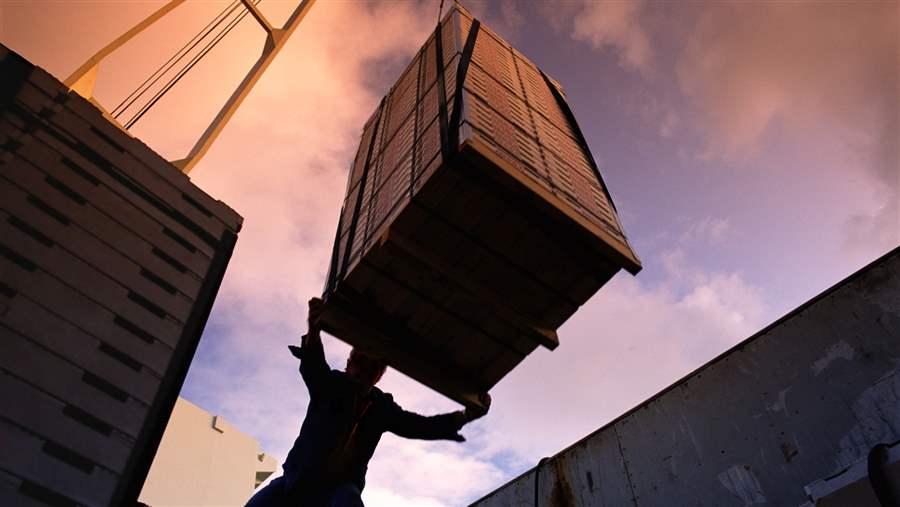Rise in Illnesses Linked to Foods From Abroad Shows Need for FDA Funding
Improvements to the import safety program are vital to reduce risks in America’s increasingly global food supply

Imported food is unloaded at a dock. Under a federal rule to take effect in May, products from abroad must meet the same U.S. safety standards that apply domestically.
© Getty Images
In response to consumer demand, imported foods occupy a growing share of Americans’ collective plate: About 20 percent of all food eaten in the United States is produced in other countries, up from 12 percent in the early 1990s. However, a new study by researchers at the Centers for Disease Control and Prevention and the Food and Drug Administration found that foodborne illness outbreaks tied to imported foods are rising, too, in proportion to this increased consumption, from an average of three a year from 1996 to 2000 to 18 a year from 2009 to 2014.
These findings reinforce the urgent need for Congress to approve essential funding for implementation of the import provisions of the FDA Food Safety Modernization Act (FSMA). Enacted in 2011 following a string of high-profile foodborne outbreaks, FSMA is meant to improve public health and reduce illnesses by requiring that companies take steps to prevent the contamination of their products.
One key to fulfilling FSMA’s promise is FDA’s Foreign Supplier Verification Programs rule, with enforcement for larger importers set to begin May 30. It will protect Americans’ health by requiring that imported foods meet the same safety criteria as foods grown or processed here at home. Thanks to FSMA, these standards include the nation’s first enforceable safety requirements for fruits and vegetables, a key component since produce items were the source of 84 percent of the illnesses examined by the CDC and FDA researchers.
The success of FDA’s prevention-based food import safety system depends largely on funding decisions that Congress will make in 2017 and 2018. Since FSMA’s enactment, Congress has worked constructively on a bipartisan basis to meet the challenge of funding the import program by expanding FDA’s capacity to modernize food safety oversight for imported foods, both in production facilities overseas and at U.S. ports and terminals. As lawmakers prepare spending bills this spring for the remainder of fiscal year 2017, they should continue making FSMA funding a priority and follow the blueprint laid out last year by Congress’ appropriations committees. Panels of the House of Representatives and the Senate recommended additional funding for FSMA’s implementation—just over $33 million and $40 million, respectively—and both directed about half of the increase to FDA’s imported food safety programs.
Americans deserve safe food, no matter where it comes from, and FDA plays a critical role in making that a reality. Evidence clearly shows that risks remain in the nation’s food supply. Members of Congress should continue to provide the agency with the resources needed to keep food safe and protect public health.
Sandra Eskin directs The Pew Charitable Trusts’ work on food safety.








